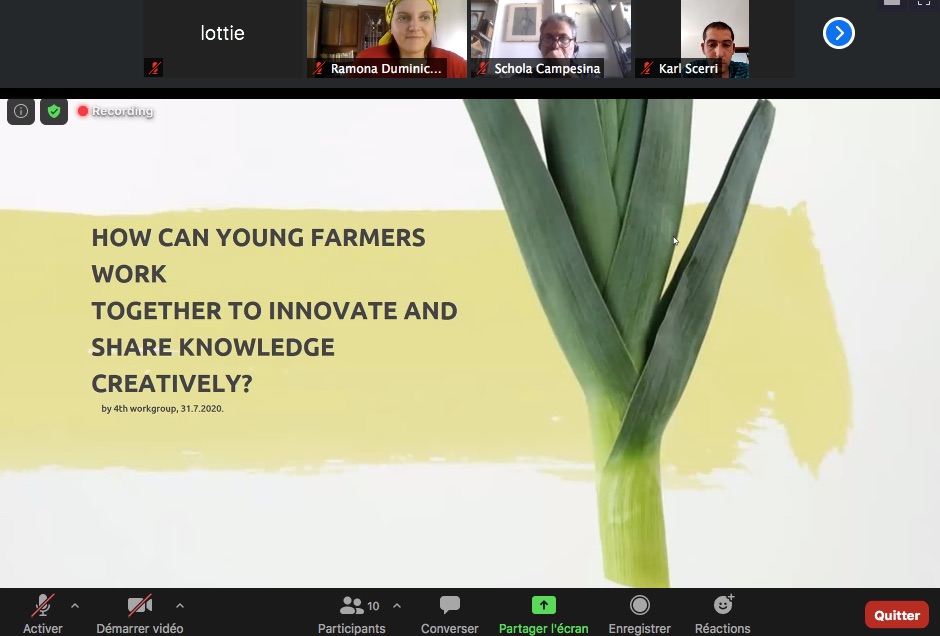How can young farmers work together to innovate and share knowledge creatively?

‘Innovation may seem positive, but what really is innovation and is it always better?’ It was Franjo from Croatia who introduced today’s topic for the 4th and final thematic workshop of BOND’s Young Farmers Forum. He opened the workshop by raising important issues concerning innovation in farming, digital innovation and knowledge transfer as a key element in agroecological innovation.
The session was continued with an intervention by Andrea Ferrante from Schola Campesina who pointed out that even though world food production has not been affected by COVID-19 sanitary crisis, family farmers are getting poorer. In regard to this observation, knowledge and knowledge transmission appear to be key elements of the innovation process that should be in farmers’ hands. Indeed, the more farmers can control knowledge in the production process, the more they can regain power on their production.
Andrea explained that today’s economy increasingly revolves around data, therefore knowledge becomes an economic good from which family farmers are being deprived. He exposed the challenge of reaching data sovereignty that will require greater regulation and effective governance in order to allow farmers to be in control of their production rather be than working for a company who will sell them a technology package that controls their value chain. He also highlighted the fact that innovation needs to be evaluated in terms of the positive progress it can bring.
In response to Andrea’s intervention, Andrijana from Montenegro asked how young farmers can protect themselves from big corporations and companies who use their data and ideas and how can technology that serves small farms be created. Franjo underlined the lack of awareness of customers when they buy food. Karl from Malta repeated Franjo’s comment by talking about the importance of traceability and going back to the source so that consumers have a connection with the origin of the products.
The participants agreed to discuss 6 clusters that had emerged from the previous discussions and prepare policy recommendations. They will be working together to address pressing issues such as the implications of digitalization on data ownership, the purpose of innovation, the role of young farmers in the innovation process, the digitalisation of food markets and their relocalisation, education and knowledge transfer and examples of innovation for positive progress.
This was the last of four thematic workshops hosted by Eco Ruralis for The BONDProject.
To read more click https://bit.ly/BonYF
